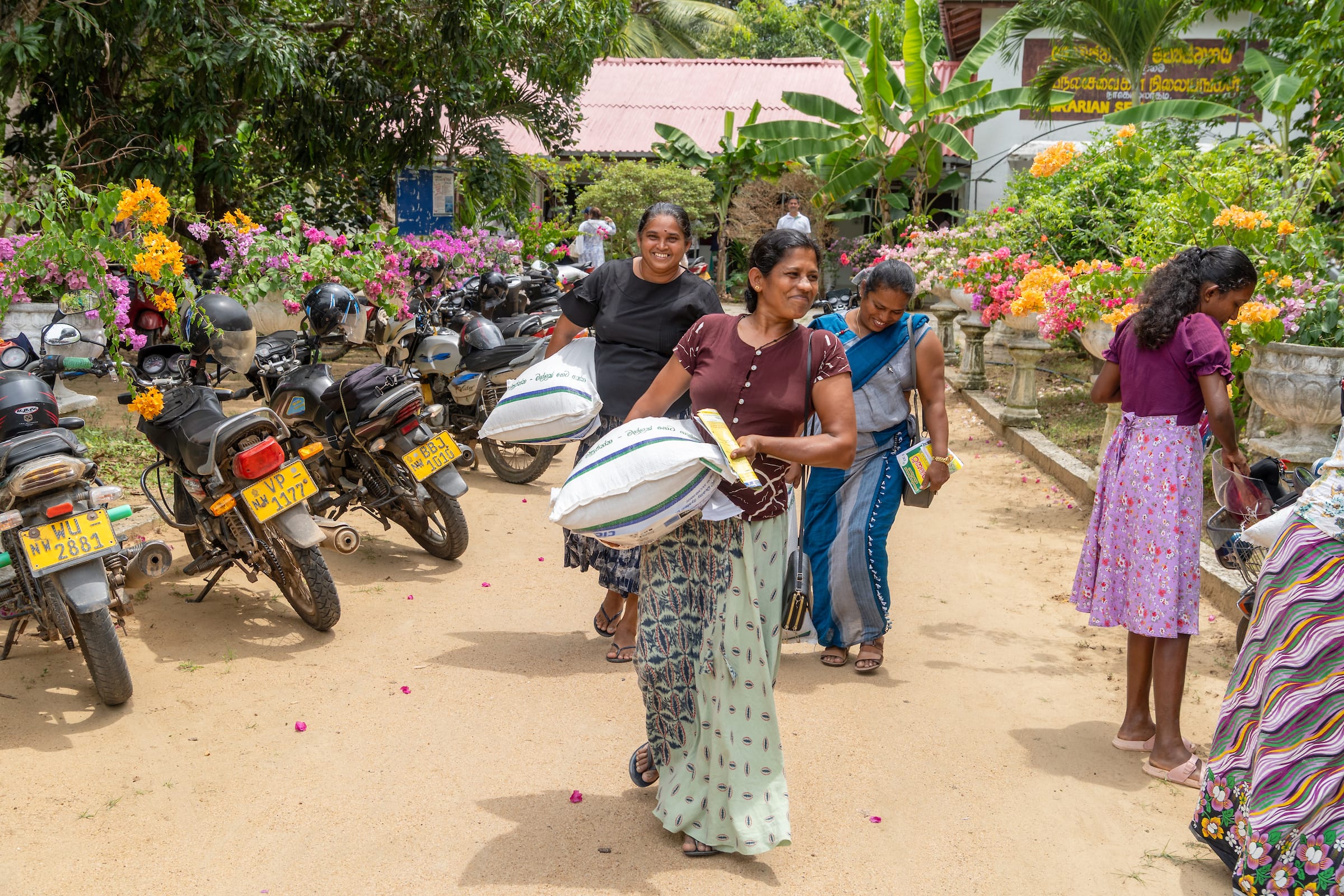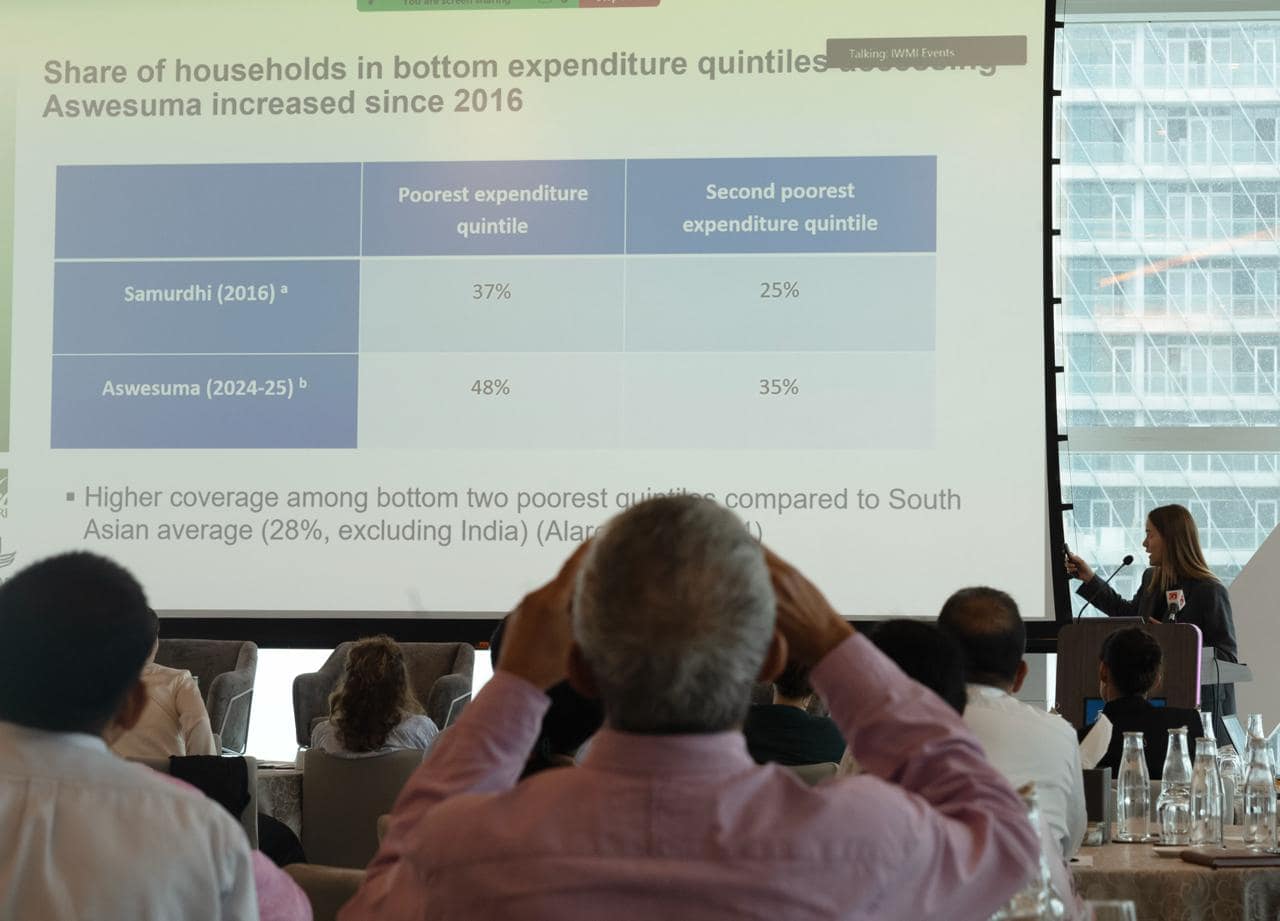Sri Lanka
Sri Lanka depends on monsoon rainfall as the primary source for its water resources; this is highly variable in space and time. Approximately 81% of the island’s population resides in rural areas and depends on agriculture for their livelihoods. Water scarcity in the country’s Dry Zone makes cultivation difficult for part of the year and is a major constraint to development. Climate change aggravates this water scarcity further: monsoons are more erratic and persistent droughts are common. Due to increased demands from agriculture, industry and urbanization, water resources are being rapidly depleted. The government has made a major effort to establish new water infrastructure, renovate existing dams and reservoirs, and promote improved irrigation technologies to meet the demand for agricultural water. Nevertheless, water-related challenges continue to increase, and Sri Lanka’s target to provide a piped water supply to 100% of the population is elusive at best.
IWMI in Sri Lanka
IWMI has been working in Sri Lanka for decades, addressing water management and environmental resilience with a focus on sustainable solutions for agriculture and ecosystems. One of the key projects involves rehabilitating the country’s ancient cascading tank systems, a vital part of Sri Lanka’s agricultural heritage, by taking a holistic approach to restore them as integrated hydrological, socio-economic, and ecological systems. IWMI also works on ecosystem services and wetland management, contributing to Colombo’s Wetland City Accreditation from the Ramsar Convention in 2018, and strengthening community-led conservation strategies. Additionally, the institute is pioneering digital tools for flood and drought monitoring, providing early warning systems and disaster preparedness solutions.
In collaboration with government agencies, IWMI is tackling critical issues such as chronic kidney disease linked to contaminated groundwater, offering evidence-based solutions and working with affected communities. The institute is also focusing on solid waste management, developing guidelines to convert organic waste into high-quality fertilizer, and enhancing food security through the development of a national food waste prevention roadmap. With a strong emphasis on climate resilience, IWMI supports sustainable agricultural practices, groundwater management, and integrated flood and drought management across Sri Lanka, aiming to safeguard water resources and improve livelihoods.
Country representatives
Lal Muthuwatta
Nishadi Eriyagama
Get updates
Be the first to know about IWMI research, data, events, and news.









